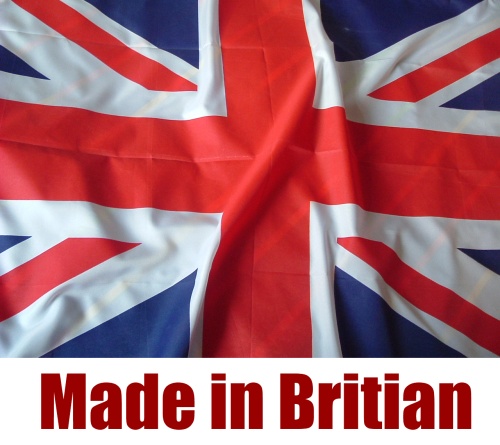Commercial properties officially caught Jubilee fever over the long weekend, with souvenirs and memorabilia revenue soaring over the four day holiday. However, some large commercial property chains have been accused of profiteering, offering non-British goods at knock down prices and not really grasping the spirit of the occasion – instead, using it as a way of making a quick buck.

This is not the case for the Portmeirion Group, a quintessentially British commercial property chain that has embraced the true Jubilee spirit by selling high quality British made products. In a year where many British businesses are failing, struggling to cope with the economic downturn, Portmeirion has endured and become a blueprint for sensible business standards, with their commercial properties going from strength to strength.
The Stoke-on-Trent based company expects to see a profit uplift of around £1 million thanks to the British public being attracted to the delicate china cups, pots and plates being sold in commercial properties up and down the country. Apparently, the ceramics industry still has a place in the hearts of the British public, although many commercial property companies in the sector have failed in recent years.
Perhaps part of what makes Portmeirion so enduring is the quality of goods it sells – each piece sent from its factory is hand checked and altogether, 22 workers are involved in the creation of each plate, cup or pot before the item is shipped. The commercial property factory workers use metal tools to lightly tap each item produced to ensure that no cracks or damages are present, making for a very high quality of manufacture.
In fact, the company has proven so successful that it recently saved two more of Britain’s most popular pottery brands when they looked set for liquidation in 2009 – Royal Worcester and Spode have been huge parts of the manufacturing industry in this country for decades and now operate under similar business models to Portmeirion.
Largely acclaimed for the success of the business is chairman Dick Steele, who played a major part in the expansion of Portmeirion in the US and Asia. These are growing markets, and by launching commercial properties in these areas, Steele ensured that the company’s international sales stabilised the rocky British market base caused by the double dip recession.
Currently, around three quarters of Portmeirion’s commercial property sales come from export, with the USA accounting for forty percent of all sales and South Korea closing the gap annually – this year showing twenty percent of overall revenue. However, Steele hopes to open Portmeirion commercial properties in Russia, China and India, thus increasing both the brand and the sales revenue.
Mr Steele admits that he has had to adapt the business model of Portmeirion considerably in the past decade or so, as a means of keeping up with current trends and international economics. However, he is delighted that his commercial properties are going from strength to strength.
He says; “The market has changed dramatically in the past five to ten years. The time to market from the design stages is also much quicker which allows us to react faster.
“This is a traditional business which is thriving on innovation. We are sticking to the basics of giving design and assured quality.
“But there is hard-headed commercialism to make sure that product that gets designed work.”
In the Queen’s Diamond Jubilee year, it is particularly refreshing to hear of a business that is going from strength to strength in the British manufacturing sector, as opposed to being forced to close commercial properties and make workers redundant. Let’s hope that, with the revenue generated from Jubilee memorabilia sales, the expansion into Eastern markets is successful and the Stoke-on-Trent commercial property business continues to grow.
Previous Post
Do you use your Office Email to Gossip?